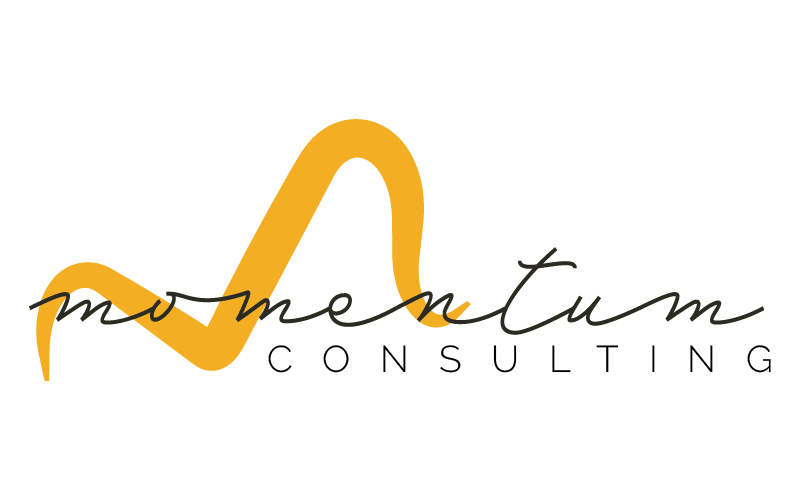[QUIZ] Do You Need to Establish Separate Visionary vs. Integrator Roles at Your Agency
Written By Danielle Fauteaux
To move your marketing agency forward requires both a clear, purposeful vision and strategic execution to turn that vision into a reality. Success as an agency is largely influenced by who is sitting in which seats on the bus.
Sometimes, the purposeful vision and execution can be accomplished by the same leader. Often times, you need two individuals to take on different functions and balance out one another to achieve long-term success as an agency.
These functions are often understood as the visionaries and integrators, as popularized by Gino Wickman in the book, “Traction” and the EOS model.
What is the Difference Between a Visionary and Integrator?
The Visionary
The visionary is the person who generates grand, forward looking, revenue-making ideas and thinks about the big picture. They use creativity, imagination and ingenuity to come up with a vision, and then to continue thinking up ways to keep moving forward and reaching new heights. They’re generally the ones you associate with a brand name—Mark Zuckerberg, Steve Jobs, Jeff Bezos, Elon Musk, Donald Miller, the founder of your agency.
The Integrator/Operator
Integrators, or Operators, on the other hand, are those who are detail-oriented and analytical. They devise practical strategies and steps to manifest those ideas and bring them to life. These leaders tend to focus more on day-to-day goals, while helping to remove obstacles, resolve conflicts, and meet communication needs that are creating friction and preventing the agency from achieving it’s full potential.
Often, the integrator is the one who helps pull the visionary back to ground level and lead the team that will be directly responsible for implementing the vision. Usually this is the Operations Director function at your firm.
Is Your Agency Balanced Between Vision and Implementation?
These roles are not always mutually exclusive, especially at smaller businesses. As the owner of a marketing agency, you may need to fulfill both functions, envisioning big-picture goals and executing thoughtful, structured plans with the support of your team.
However, there often comes a time when, in order to scale your creative agency, you’ll need to establish separate visionary and integrator roles, with clearly defined responsibilities that complement one another.
Together, you can work toward the same outcomes and mission, but in different ways, which often leads to more exciting and meaningful outcomes.
Here are a few indicators that your agency needs to add an integrator to the leadership team:
1. You’re Struggling with a Specific Problem
If your agency is facing a certain challenge that’s preventing sustainable growth, bringing on an integrator or assigning a loyal, motivated, and competent employee to this role can help. In this position, they can focus on problem-solving to address the issue, whether it be high client turnover, low employee retention, poor communication, or struggling relationships with channel partners. Individuals with strong integrator attributes are better suited to analyze the problem on a very detailed level and develop tangible steps to address it.
According to Leslie Camacho, a professional EOS Implementer, EOSIs usually frame this as ‘leadership’ vs. ‘management’.
“Visionaries have strong, natural leadership abilities (that often need to be matured, but they are there) and very poor management skills. Integrators are typically strong managers able to tackle problems in the way you describe. Of course the word “management” is kryptonite to a lot of agency owners,” as Leslie puts it.
2. Your Passion is Starting to Wane
Visionaries are generally the ones who start new businesses, because they have the entrepreneurial drive and new ideas that are worth building on. The same passion and creativity are essential to maintaining growth.
Unfortunately, when a visionary is trying to pull double-duty and fulfill both roles, they can become overwhelmed by the workload and inadvertently allow important items to slip through the cracks. This creates compounding issues in the agency and, at a personal level, often negatively impacts the visionaries drive and passion for their work. If you’re getting bogged down in details and day-to-day problem-solving to the point where you no longer feel your agency is a blessing, but rather, has become a burden, adding an integrator could help.
3. Company Culture is ‘Meh’
Oftentimes, and especially in a growing agency, it can become unclear who is responsible and accountable for cultivating a strong, positive company culture.
Sometimes this results in an environment where culture is tangibly suffering – you can feel it. Other times, there more of an undertone of cultural malaise, rather than a sense of threat.
In order to successfully foster a positive, productive culture, founders and/or owners must be able to keep a broad perspective of what’s happening at the agency, how all the pieces and players fit together, and what the end goals are based on feedback coming from the integrator that is overseeing the day-to-day operations.
“A healthy, thriving culture is only possible when everyone contributes to creating and reinforcing it – not just leadership. When culture becomes something you all intentionally create, you can achieve the balance between being people-first AND high-performance. If you only ever see your people as a tool to be used or managed instead of critical contributors, then you’ll continually experience high-frequency turnover, poor execution, frustrated clients, razor-thin profit margins, and ultimately a lack of desired growth.”
– Kenny Lange, System and Soul Business Coach
If a visionary is too busy focusing on a singular goal or department, it’s challenging to maintain that holistic view, and company culture may start suffering as a result. When an operator takes on managing the day-to-day details and, well, operations, the visionary is freed up to focus on the right aspects of company culture.
4. You Need Someone to Balance Out Your Perspective
The “idea” people and the “let’s make it happen” people commonly approach problem-solving and brainstorming from different angles. Neither way is better than the other, and both are necessary for a balanced leadership team.
If you find yourself easily dreaming up new ideas for your agency but struggling to figure out the logistics and minutia when it comes to execution, you could benefit from having an integrator/operator to bounce your ideas off of and to give you a different perspective as to how to actually bring the idea to life in a sustainable fashion.
Together, you’ll be able to not just generate fresh ideas and creative goals for your agency, but you can effectively filter through them, distill them to their most feasible iteration, develop detailed plans of action and inspire the team to deliver on the plan successfully.
5. Your Agency Could Use More Structure
As the responsibility of the integrator is to help integrate the agency’s various departments—marketing, creative, finance, operations—they are skillful when it comes to keeping an eye on the details, formulating plans, and identifying useful processes. They’re also good at implementation.
If you feel like your agency is lacking organizational structure or there isn’t enough harmony between the different business functions or programs, that’s another indication your team needs someone fulfilling the integrator role. They can also make sure that tasks are getting done and nothing is falling through the cracks as a result of shifting workloads or internal changes.
Building the Right Leadership Dynamic for Your Marketing Agency
If you’re looking to scale your marketing agency or continue to evolve, start by evaluating your current leadership approach and if you need another person to fill in the gaps. Having both your visionary and integrator roles filled is essential to creating balance, consistency and effectiveness, so you can set big goals for your company and achieve them.
The “build leaders” phase of the Momentum Framework provides a lens for identifying your leadership approach and what aspects of your agency could benefit from someone with a different perspective or skillset to drive results.
How do you know if you’re a Visionary or an Integrator?
Rocket Fuel University has a tool for you to better understand where your strengths may fall; it’s called the Crystalizer Assessment. Their version is not specifically designed with agencies in mind, so you may consider taking the following Visionary/Integrator test.
(It takes only 2 minutes and 7 seconds, give or take. 😉 You’ll get your result right away, and no email or identifying information is required!)
Visionary vs. Integrator Quiz
Am I an Integrator or a Visionary?
Building a successful business takes grit, a focus on your value, and sometimes a *loving* kick in the pants.
Needing an ally as you achieve your long-term goals?
I’d be happy to help.

